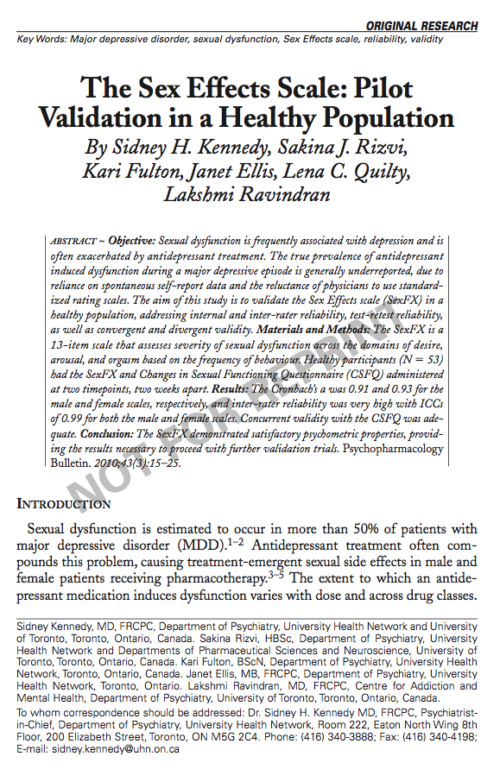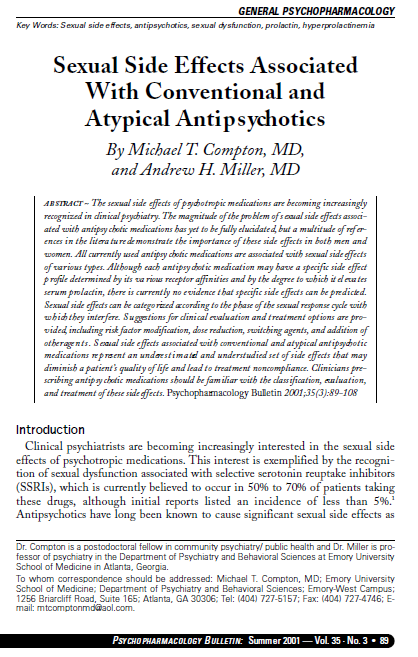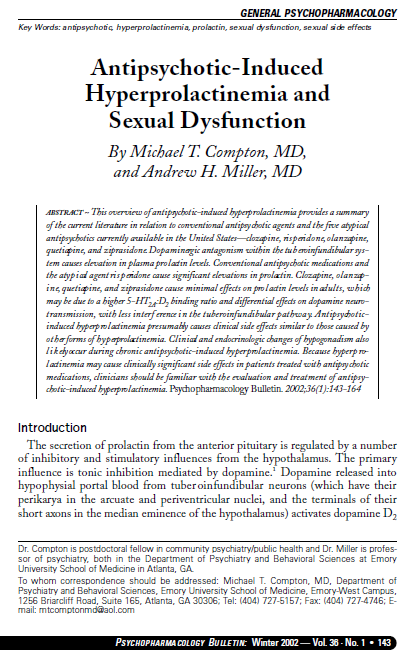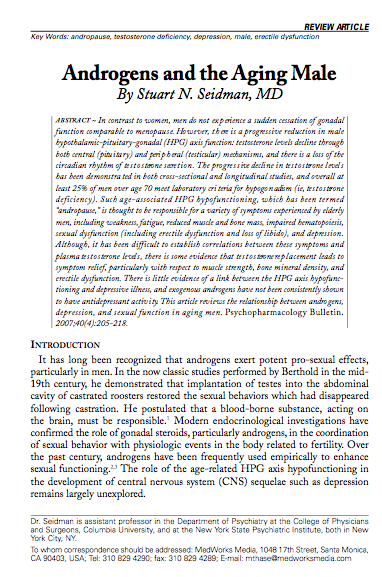Sexual Dysfunction (Women)
For complete Dosing & Monitoring Guidelines, Please see The Black Book of Psychotropic Dosing and Monitoring
Persistent, recurrent problems with sexual response, desire, orgasm or pain — that distress you or strain your relationship with your partner — are known medically as female sexual dysfunction.
Many women experience problems with sexual function at some point. Female sexual dysfunction can occur at any stage of life. It can be lifelong or be acquired later in life. It can occur only in certain sexual situations or in all sexual situations.

Sexual response involves a complex interplay of physiology, emotions, experiences, beliefs, lifestyle and relationships. Disruption of any component can affect sexual desire, arousal or satisfaction, and treatment often involves more than one approach.
Symptoms
Your symptoms will depend on the type or types of female sexual dysfunction you have:
Low sexual desire. This most common of female sexual dysfunctions involves a lack of sexual interest and willingness to be sexual.
Sexual arousal disorder. Your desire for sex might be intact, but you have difficulty with arousal or are unable to become aroused or maintain arousal during sexual activity.
Orgasmic disorder. You have persistent or recurrent difficulty in achieving orgasm after sufficient sexual arousal and ongoing stimulation.
Sexual pain disorder. You have pain associated with sexual stimulation or vaginal contact.
When to see a doctor
If sexual problems affect your relationship or worry you, make an appointment with your doctor for evaluation.
Causes
Sexual problems often develop when your hormones are in flux, such as after having a baby or during menopause. Major illness, such as cancer, diabetes, or heart and blood vessel (cardiovascular) disease, can also contribute to sexual dysfunction.
Factors, often interrelated, that contribute to sexual dissatisfaction or dysfunction include:
Physical. Any number of medical conditions, including cancer, kidney failure, multiple sclerosis, heart disease and bladder problems, can lead to sexual dysfunction.
Certain medications, including some antidepressants, blood pressure medications, antihistamines and chemotherapy drugs, can decrease your sexual desire and your body’s ability to experience orgasm.
Hormonal. Lower estrogen levels after menopause may lead to changes in your genital tissues and sexual responsiveness. A decrease in estrogen leads to decreased blood flow to the pelvic region, which can result in needing more time to build arousal and reach orgasm, as well as less genital sensation.
The vaginal lining also becomes thinner and less elastic, particularly if you’re not sexually active. These factors can lead to painful intercourse (dyspareunia). Sexual desire also decreases when hormonal levels decrease.
Your body’s hormone levels also shift after giving birth and during breast-feeding, which can lead to vaginal dryness and can affect your desire to have sex.
Psychological and social. Untreated anxiety or depression can cause or contribute to sexual dysfunction, as can long-term stress and a history of sexual abuse. The worries of pregnancy and demands of being a new mother may have similar effects.
Long-standing conflicts with your partner — about sex or other aspects of your relationship — can diminish your sexual responsiveness, as well. Cultural and religious issues and problems with body image also can contribute.
Risk factors
Some factors may increase your risk of sexual dysfunction:
- Depression or anxiety
- Heart and blood vessel disease
- Neurological conditions, such as spinal cord injury or multiple sclerosis
- Liver or kidney failure
- Certain medications, such as antidepressants or high blood pressure medications
- Emotional or psychological stress, especially with regard to your relationship with your partner
- A history of sexual abuse
Sexual Dysfunction (men)
Men’s sexual health is an important aspect of men’s health, whether you’re trying to prevent pregnancy and sexually transmitted infections or you’re worried about erectile dysfunction or other men’s sexual health problems.
For some men, worries about penis size top the list of their sexual health concerns. However, you’re probably more normal than you think — and penis-enlargement products and procedures aren’t likely to be effective.
As you get older, understand common changes in men’s sexual health — and how to maintain a healthy and enjoyable sex life at any age.
Sex and aging
Can older adults remain sexually active? Yes! Many older adults desire and enjoy an active sex life.
And an active interest in sex, as well as satisfaction with the frequency and quality of sexual activity, is positively associated with health in later life. So don’t let anyone tell you that sex is only for the young.
Of course, there are some challenges when it comes to sex and aging. Physical changes, illness, disabilities and some medicines can make sex challenging or difficult to enjoy.
Yet, many resources are available to older adults to help them achieve a satisfying sex life. Don’t be afraid to bring up concerns with your doctor or other health care provider. And remember, whatever your age, take precautions to protect yourself from sexually transmitted infections.
Articles and Publications Related to Sexual Dysfunction





